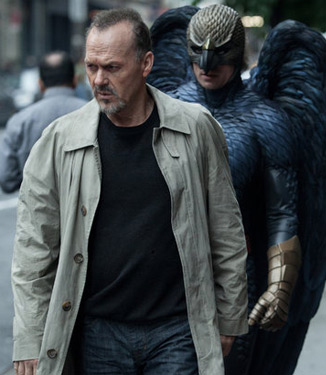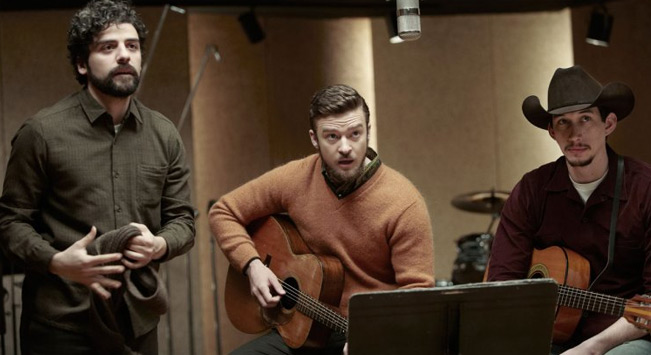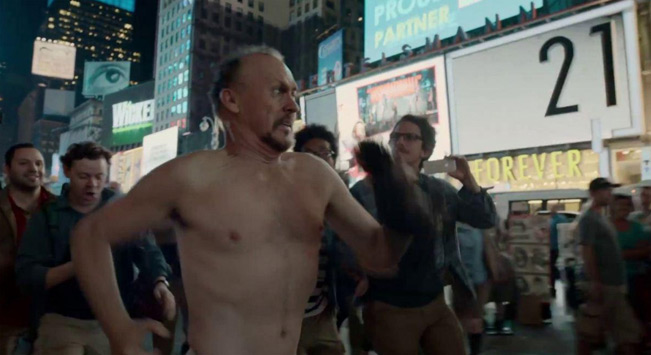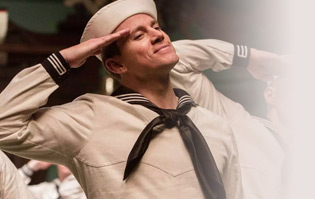 Let’s face it, casting calls are stressful. From the actors to the casting director, emotions run high for everyone involved.
Let’s face it, casting calls are stressful. From the actors to the casting director, emotions run high for everyone involved.Even the most seasoned professionals want to pull their hair out on occasion. In fact, Alfred Hitchcock famously said, “Disney has the best casting. If he doesn’t like an actor, he just tears him up.”
Now, we’re not saying casting was responsible for Hitchcock’s baldness. But, it’s clear the process is complex. It requires attention, communication and understanding. But what’s the best way of navigating this world?
Well, two people who know the answer better than most are Debbie and Adam DeLisi. As founders of DeLisi Creative Casting, the couple have more than 20 years experience casting talent. Much of his has been for some of the most revered artists of all time. These include Steven Spielberg, The Coen Brothers and Alejandro Gonzalez Iñárritu.
Recently, we had the opportunity to speak with Debbie and Adam about acting jobs and auditions. Here, they share their thoughts on how an actor can prepare themselves for a variety of roles. Surprisingly, it doesn’t involve thinking like a casting director.
Alright, let’s get started!
For Debbie though, an internship in 1996 changed everything.
“I got involved with casting because I wanted to get close to a casting director named Jane Brody,” Debbie says. “Back in the day, every actor wanted to be close to Jane. Luckily, I managed to get an internship with her on the movie Fargo. That’s what really got the ball rolling.”
Under Jane’s guidance, Debbie learned the ins and outs of the casting industry. For Debbie, becoming more familiar with how casting calls and auditions develop helped her to mature as an actor.
“I fell in love with the process almost immediately,” Debbie says. “It was eye-opening, and great training for the industry. But, working in casting is not always encouraged for actors. In fact, a lot of circles discourage it. This is because casting takes up a lot of time, and can prevent an actor from honing their craft. However, I’ve found this dual career to be beneficial. Although I may be working as a casting director, I still have the mindset of an actor. I feel this approach can make you more well-rounded in a complex business.”
“For me, I’m always trying to give that undiscovered talent extra time to work with them,” Debbie says. “A lot of what I do borderlines on being an acting coach. If I get someone in the room and feel there is potential, I try to get the best audition I can out of them. In fact, I work them pretty hard until we get what we need. I think casting is a business, but I get obsessed with the human element. I’m very much for the actor, and am going to work with them. I always feel their pain and joy. Now, this route doesn’t work for everybody, but it works for us.”
“Yes, with performers in general, we always try to create a safe environment when conducting auditions,” Adam says. “Even if it’s just a little meet-and-greet, I want them to feel secure. I think that’s one of the bigger elements that’s often overlooked. There’s so many sterile, uncomfortable environments when it comes to auditions. Being a performer myself, I have compassion for artists coming in and baring their souls so to speak. The worst thing is walking into an audition that’s icy. Like Debbie said, it is a business, but it’s also creative and emotional. The more welcoming you make people feel the better they perform.”

At some point, every actor tries to think like a casting director. To master auditions, one must anticipate what the casting director is looking for. For Debbie and Adam though, this kind of thinking is a reason actors often sabotage themselves.
“Actors should not try to think like a casting director,” Debbie says. “I think that messes people up from the get-go. As actors, we’re all somewhat vulnerable. We’re not super-skilled with auditions, and to then try and think like a casting director becomes problematic. Their job is not to think like a casting director. Their job is to give the best audition they can. It isn’t necessary to figure out what we want. What we want, is for them to show us what we want.”
Of course, Debbie and Adam have certain expectations when it comes to specific acting roles. But more often than not, there’s still room for interpretation. That’s what Debbie and Adam want. They want an actor who can think on their feet, and adapt to a variety of situations. It’s about balancing preparation with spontaneity.
“People will always ask us what do you want? What are you looking for,” Debbie continues. “I want to say, well, I want you to be you. When the right person comes along, they’re not trying to be what I want. They’re making choices and delivering the best audition they can. I think the whole strategy of trying to figure out what the casting director wants ends up backfiring most of the time.”
“The wisest words I’ve ever heard on the topic came from a six-year old boy,” Adam says. “We were doing a big search and came across this amazing kid. His mom happened to be a casting director as well, so we started talking. I said this kid is so good. She’s like, yes, I know. He’s booking all these acting jobs and I recently asked him how are you doing this? What are you eating? He looked up and said, mom, you just have to be yourself. When she told me that, I couldn’t believe it. Yes, it sounds cliche, but it was profound coming from a six-year-old. Like Debbie said, we want people to just walk through the door and be themselves. Don’t be afraid to take a risk with the piece. Just make a solid choice, and stick with it.”
“There’s a common misconception amongst actors that the casting director doesn’t like me,” Debbie says. “That couldn’t be farther from the truth. Of course, some casting directors are not as personable as others. Some are in a big hurry, and may not be as warm. However, we all want to book the role. We want to say we have 50 selects versus five. Generally, if a casting director is brusque, it’s because they’re in a hurry to see people. It’s not that they don’t like you. Believe me, we want to book the job. We want to have many candidates for the role.”
Another element that bugs Debbie and Adam is when an actor goes to great lengths to conceal their flaws. More than anything, the couple wants the performer to be fully present in the moment. Worrying about pimples or haircuts takes energy away from the performance. For Debbie and Adam, it’s all about standing out and using imperfections to your advantage.
“Here’s another thing Adam and I were talking about,” Debbie says. “There seems to be an obsession about youth, and presenting your best foot forward for the casting director. We just want to see you in your most raw, human element. Both your look and and your personality. We always say, embrace who you are. Some people think I need to look younger, or be in a certain type of shape. The reality is, we want the real deal. Embrace what you would perceive as a flaw. I’m more interested in fun facts about you. Or, something that’s going on in your life that’s causing joy or stress. We want real humans. Not headshoty, schticky experiences.”
“What’s often overlooked is the simple authenticity factor,” Adam says. “It’s so funny, because as humans we tend to make life complicated. As performers, we get so caught up in making the small details more complex than they need to be. You just need to show up to casting calls and take a risk. Don’t let unnecessary thoughts overwhelm you.”

For years, directors have turned to Debbie and Adam to fill niche acting roles. Of course this involves principal talent, but it also includes background actors.
Often, actors will develop an attitude of well, I’m just an extra. Why do I have to worry about how I present myself? The directors Debbie and Adam work with take every role seriously. There’s no such thing as unimportant acting jobs on their projects.
Because of this, Debbie and Adam encourage actors to look deeper and perform at their highest level no matter what the audition is for.
“Casting for background is a lot more than how a person presents their headshot,” Debbie says. “We’re into their spirit, and their personality. We ask ourselves, do they feel truthful? I would rather have them make an initial mistake during an audition, but be truthful. It’s much more preferable than the cookie-cutter of what they think we want. For example, we worked on Suburbicon and there was a need for a reporter role. Now, it wasn’t specific as to what age this person needed to be. We called in many actors. They ranged from late 20’s to late 50’s. Even though the role consisted of a couple lines, the actors brought many different interpretations. The best were not people who did big theatrics. They made specific choices, and didn’t get caught up in the presentation process.”
In Debbie and Adam’s experience, casting background is often more difficult than casting principals. With background acting roles, performers don’t have the luxury of dialog to express their emotions.
“Some directors just want the background to be the background,” Debbie continues. “But, often the directors we work with are not like that. The directors we work with are quite meticulous. In situations like that, our job is even harder because these acting roles don’t depend on words. Performers have to act with their presence, spirit and eyes. To me, some of those featured background roles are harder to cast because they’re not depending on dialog.”
“It’s always exciting to see a director take so much care in casting talent,” Adam says. “I mean, we did Birdman and there were some background roles where we conducted three or more callbacks. Just for one background role. You see, background can be so vital to a project. It shouldn’t be neglected.”
Balancing The Human Element and Online Casting Advancements in technology have changed much of the entertainment landscape. As science continues to evolve, questions arise. How can one navigate this new media landscape? How can we use the lessons of the past to progress into the future?
For Debbie and Adam, the answer is balance. Casting talent, like other industries, must find ways of using technology to compliment the human touch. This includes trying to cast online.
“Unfortunately, casting always gets the squeeze when it comes to budgets and recognition,” Debbie says. “So, some aspects of technology do hurt because people are bypassing expertise for shortcuts. But on the flipside, online casting is amazing because it makes us more efficient. It makes it much easier to send tapes and gather resources. You have to remember, when I started there weren’t cell phones or easy access to laptop computers. We’d have to handwrite information and then send it out to be typed. We would tape people and edit the tapes ourselves. After that, we’d have to FedEx the tapes to the director and producer. It became such a time-consuming process. Whereas having the ability to cast online makes things more streamlined.”
“But, human interaction is still important,” Adam says. “Without it, I think there’s a missing link with the work. It becomes very rote and impersonal. It’s harder for people to inhabit a character if the material is just piecemeal together. Whether we’re booking background or big scenes, we speak to everyone over the phone. Because of that, people tend to have a better attitude when they come to set or auditions. When you actually speak to another human, the no-show rate goes down. The more communication you have, the better all-around you will be. There needs to be balance between technology and the human touch.”
“Creation is key for us,” Debbie says. “Whether it be casting or acting, everything involves creation. Part of that creation is the people element. Adam and I have a unique skill set where we can remember and relate to people very well. This is why we’re able to do so many diverse projects within the casting world. We don’t limit ourselves to specific acting roles. A lot of it is because we’re truly enamored with people. Ultimately, we’re people people. That aspect really fuels our work.”
It’s Debbie and Adam’s complete investment in their work that continues to benefit and shape the casting industry.

